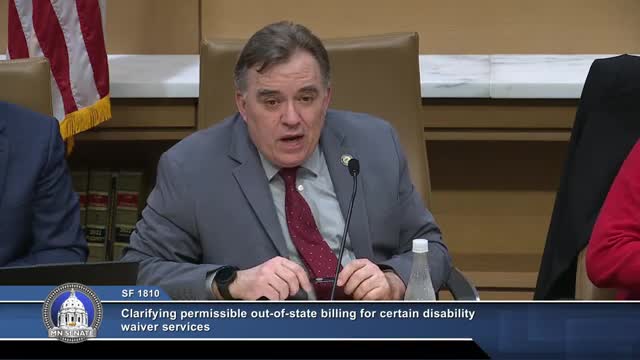Article not found
This article is no longer available. But don't worry—we've gathered other articles that discuss the same topic.
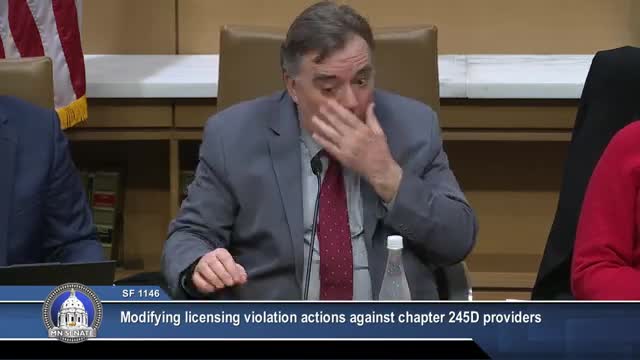
Bill would change 245D enforcement, add compliance education and mediation; committee asks for fiscal note
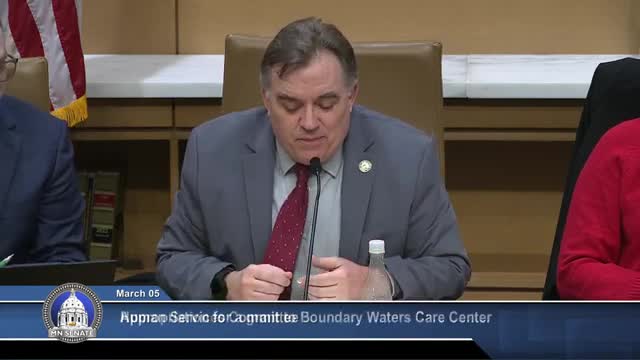
Senators hear plea to stabilize rural Boundary Waters Care Center; appropriation request laid over
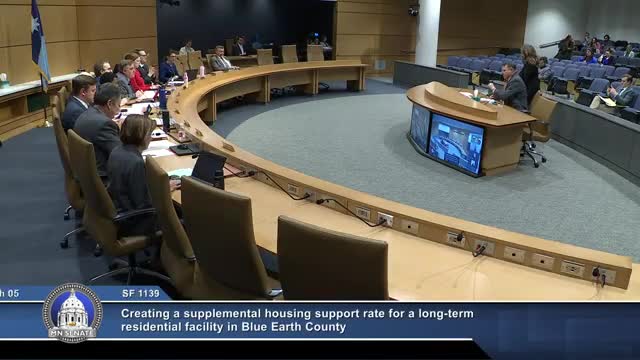
Senators consider higher supplemental housing support rate for Welcome Manor family treatment center
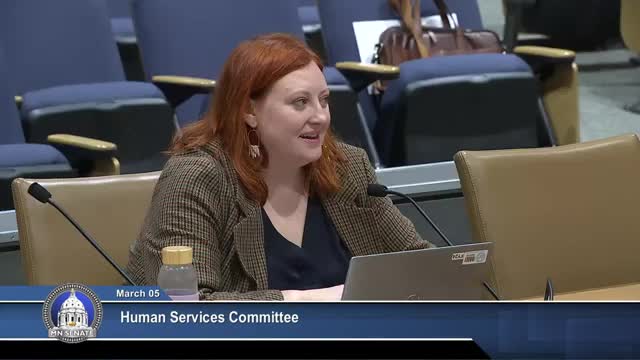
DHS says provider under investigation; preparing contingency if NuWay closes
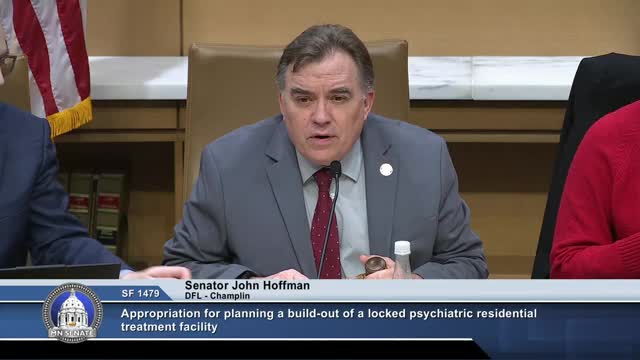
Bill to plan psychiatric residential treatment expansion passes committee and is re‑referred
